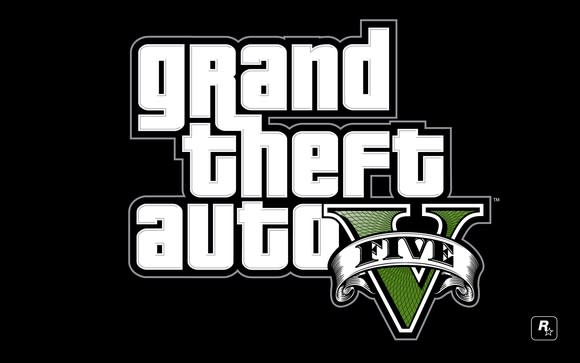What the Last 10 Years at Take-Two Interactive Can Teach Investors
Take-Two Interactive (NASDAQ: TTWO) has given investors a lot to cheer about with the stock up more than 600% over the last five years. But the famed creator of the Grand Theft Auto franchise has experienced its fair share of ups and downs.
It all started in Feb. 2008 when Electronic Arts (NASDAQ: EA) made an offer to acquire Take-Two in a potential deal valued at $2 billion, which represented a 50% premium to where shares traded at the time. Take-Two turned down the offer as management believed it significantly undervalued the business.
However, over the next five years, Take-Two actually struggled to grow, and its stock dramatically underperformed the broad market. It wasn't until 2013 when the company kept up its momentum, kicking off a bullish rally that would eventually see it outpace both EA and the S&P 500.
Let's look back at what happened in those intervening years and see what they can teach us about long-term investing.
The state of EA and Take-Two in 2008
In 2008, EA was pursuing a strategy to grow revenue and profits by expanding their game catalog as much as possible, which would later backfire on the company (more on that later). The acquisition of Take-Two and its top selling Grand Theft Auto series -- which even back then was seen as one of the most valuable titles in the industry -- would've helped EA expand its market share.

Grand Theft Auto V -- released in 2013 -- has sold more than 90 million units. Image source: ROCKSTARGAMES.COM.
On the flip side, Take-Two had just been through a rough few years, which included an SEC investigation into its accounting practices and weak financial performance under previous leadership. At the time, Executive Chairman Strauss Zelnick and new CEO Ben Feder were putting in place a plan to grow the business, centered around the success of Grand Theft Auto. In addition, Take-Two's NBA 2K franchise was beginning to gain popularity and dethrone EA's long-running NBA Live series.
In a press release, Take-Two called EA's offer "opportunistic", since Take-Two was on the eve of releasing Grand Theft Auto IV (GTA IV), which boosted Take-Two revenue 56% in fiscal 2008 and allowed the company to report its first profit in three years. However, sales of GTA IV proved to be only a short-term catalyst.
Back then, the industry survived on major new releases. Take-Two's top line dipped just a year after GTA IV's release, and the company's financial performance continued to be inconsistent through the fiscal year ending in Mar. 2013.
Metric | 2013 | 2012 | 2011 | 2009 | 2008 |
|---|---|---|---|---|---|
Revenue | $1,214 | $826 | $1,137 | $701 | $1,231 |
Cash from operating activities | ($5) | ($85) | $135 | ($210) | $151 |
Figures in millions. Data source: Company filings. Years 2013, 2012, and 2011 are fiscal years ending in March. Fiscal years 2009 and 2008 ended in October.
Understandably, the stock underperformed given there was no sustainable growth in sales. From Feb. 2008 through 2013, Take-Two stock declined over 35%.
Come 2013, many observers would've considered Take-Two's rejection of EA's offer as a missed opportunity, but the latter was actually in worse shape. Electronic Arts stock was down 51% over that same period, as its bloated game catalog and soaring game development costs under former CEO John Riccitiello caused massive losses on the bottom line.
Take-Two finds a groove
It's taken a while for the market to appreciate the value that Zelnick saw in the company in 2008, but patient investors have been rewarded
Over that time, Take-Two stayed focused on producing a few high-quality games that earn favorable reviews, but it also introduced other successful new franchises like Red Dead Redemption and Borderlands.
In 2011, Executive Chairman Strauss Zelnick became CEO and was optimistic about the growth opportunity in digital distribution, which has improved Take-Two's ability to generate more consistent cash flow, since digitally delivered content generates higher margins than packaged goods.
Metric | 2017 | 2016 | 2015 | 2014 | 2013 |
|---|---|---|---|---|---|
Revenue | $1,780 | $1,414 | $1,083 | $2,351 | $1,214 |
Cash from operating activities | $331 | $261 | $213 | $700 | ($5) |
Amount in millions. Data source: Company filings. Years are fiscal years.
Over the last five years, gaming has become more of a social experience, turning many games into a sticky service with high player engagement sustained for months after the original release. One example of how Take-Two has capitalized on this trend is Grand Theft Auto Online -- an online multi-player feature which distributes to players a steady stream of new updates to the base game.
The key lesson
The last 10 years of Take-Two's history provide a valuable lesson to investors: Stay focused on the business. Given the company's focus on making quality games and management's optimism about the opportunity presented by the emergence of digital delivery of games, investors could have heeded those signals as good reasons to remain patient when the stock was finding its footing.
More From The Motley Fool
John Ballard has no position in any of the stocks mentioned. The Motley Fool owns shares of and recommends Take-Two Interactive. The Motley Fool recommends Electronic Arts. The Motley Fool has a disclosure policy.

 Yahoo Finance
Yahoo Finance 